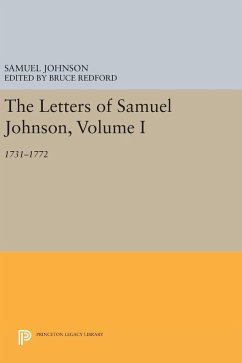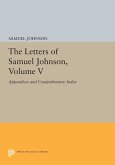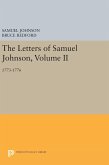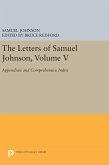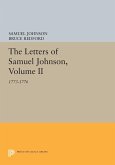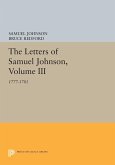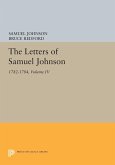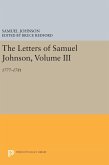"It is now become so much the fashion to publish letters, that in order to avoid it, I put as little into mine as I can," Samuel Johnson declared, according to Boswell. And Boswell answered, "Do what you will, Sir, you cannot avoid it. Should you even write as ill as you can, your letters would be published as curiosities." But Johnson's letters are far more than that. Even at their most cursory and casual, they are never less than precious biographical documents, and many of them mirror, define, and re-create a vivid likeness of the most versatile writer of eighteenth-century England. With these three volumes Princeton University Press inaugurates the first scholarly edition of this remarkable material to appear in forty years--the planned five-volume series The Letters of Samuel Johnson. Known as the Hyde Edition, the project will be completed with the fourth volume, covering the years 1782 through 1784, and the fifth, containing the comprehensive index and appendices. The series as a whole will present fifty-two previously unknown letters or parts of letters that have come to light since the publication of R. W. Chapman's three-volume set (Oxford, 1952). Such "new" letters, however, are scarcely more important than those for which only inferior printed texts or copies of varying reliability had previously been recovered. The Hyde Edition offers scores of texts transcribed for the first time from the original documents--a feature of special importance in the case of Johnson's revealing letters to Hester Thrale, many of which have been available only in expurgated form. The Hyde Edition is also the first systematically to record substantive deletions, which can yield intimate knowledge of Johnson's stylistic procedures, mental habits, and chains of association. Furthermore, its ownership credits document the current disposition of the manuscripts, hundreds of which have changed hands during the last four decades. Finally, the annotation of the letters incorporates the many significant discoveries of postwar Johnsonian scholarship, as well as decoding references that had previously resisted explanation. The result is a far richer understanding of Samuel Johnson's life, work, and milieu. Originally published in 1992. The Princeton Legacy Library uses the latest print-on-demand technology to again make available previously out-of-print books from the distinguished backlist of Princeton University Press. These editions preserve the original texts of these important books while presenting them in durable paperback and hardcover editions. The goal of the Princeton Legacy Library is to vastly increase access to the rich scholarly heritage found in the thousands of books published by Princeton University Press since its founding in 1905.

